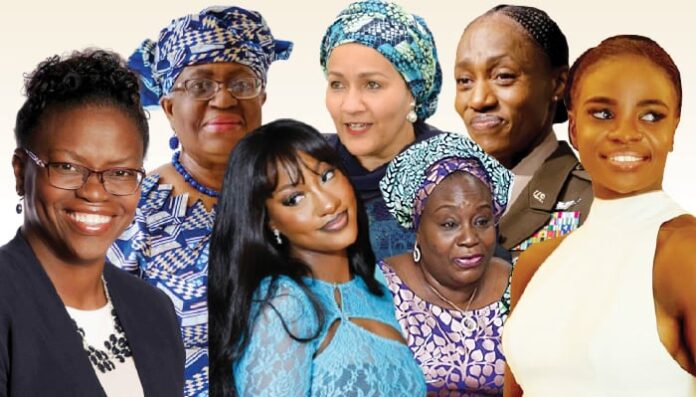By Fatima Mukhtar Isah
Nigeria stands at a defining crossroads — one that demands reflection, courage, and a decisive shift in how we perceive leadership. For over six decades since independence, our political landscape has been overwhelmingly male-dominated. Yet, despite the parade of men through positions of power, the country continues to grapple with the same persistent challenges — insecurity, corruption, poverty, and disillusionment. It is becoming clearer by the day that perhaps what Nigeria needs is not another man with promises, but a woman with purpose.
Renowned activist Aisha Yesufu recently sparked nationwide conversation when she boldly declared that Nigeria’s next president should be a woman. Her words echoed deeply among citizens weary of the status quo. They resonated with those who have watched their hopes dim amid failed reforms and repeated disappointments. Aisha Yesufu’s statement was not just a call for gender inclusion — it was a wake-up call for a nation that has long underestimated the transformative power of women in leadership.
Indeed, Nigerian women have always played crucial roles in shaping our society. From the Aba Women’s Riot of 1929, where women stood fearlessly against colonial injustices, to the relentless advocacy of modern-day reformers, women have consistently proven their courage, intellect, and patriotism. Yet, when it comes to political leadership, they are often sidelined, reduced to cheerleaders rather than decision-makers. This imbalance has come at a great cost — not just to women, but to the entire nation.
Leadership rooted in empathy, discipline, and accountability has become scarce. These are, however, the very qualities that define most women. A woman’s leadership style is often built around community, cooperation, and compassion. She leads not to dominate but to uplift. In homes, markets, classrooms, and public offices, women demonstrate daily what responsible management and selfless service look like.
Consider the example of Hajiya Zainab Musa Musawa, a hardworking public servant whose steady rise through the civil service is a story of commitment and competence. From her time at the Ministry of Women Affairs to her impactful contributions in the Ministry of Education, her journey mirrors what is possible when women are trusted with leadership responsibilities. She embodies resilience and integrity — virtues that Nigeria urgently needs in governance today.
This is not an argument for tokenism. It is not about replacing men with women for the sake of equality. Rather, it is about acknowledging that sustainable development and national healing demand the full participation of women. Nations that have embraced women’s leadership — from Germany under Angela Merkel to Tanzania under Samia Suluhu Hassan — have shown that female leaders bring stability, innovation, and a renewed moral compass to governance.
Nigeria, too, can benefit from this shift. The challenges we face are not merely economic or political; they are deeply moral and social. They require a nurturing kind of leadership — one that listens before it acts, one that prioritizes people over politics. Women understand this because they live it daily — managing scarce resources, mediating family conflicts, and nurturing the next generation.
It is time for Nigerian women to rise beyond rhetoric. The call is not just for activism but for action — to contest, to vote, and to hold the system accountable. It is time for women to support one another, to build networks, and to insist on fair representation at every level of decision-making. The fight for women’s leadership is not a battle against men; it is a movement for balance, justice, and progress.
For far too long, we have recycled the same faces and expected new results. The pattern has yielded nothing but frustration. If we truly want to restore Nigeria’s moral fiber, its peace, and its sense of unity — like the one our founding fathers dreamed of during the days of Sir Abubakar Tafawa Balewa — we must dare to do something different. And that difference begins with giving women the chance to lead.
Across every region, countless Nigerian women have shown that they possess the strength, wisdom, and integrity to steer the nation toward greatness. From the market women who sustain local economies to the professionals driving innovation in health, education, and technology, women have been leading quietly for years. It is time to bring that leadership to the national stage.
Nigeria’s future depends on courage — the courage to challenge tradition, to break barriers, and to reimagine our political destiny. The next general election presents an opportunity for us to redefine leadership not by gender, but by character and competence. And if that search leads us to a woman with vision and integrity, then we must have the courage to support her.
The time for symbolic recognition has passed. The time for meaningful participation has arrived. Women must no longer be confined to the sidelines of power — they must sit at the head of the table, where decisions are made and futures are shaped.
The question before us is simple yet profound: Who do we believe can lead Nigeria into the next generation of progress and unity? Perhaps it’s time we stop asking if a woman can do it — and start asking why she hasn’t been given the chance.
After all, as history shows, when women lead, nations heal.
Who do you think should be the leader of Nigeria’s next generation?
Your opinion could help shape the conversation our nation desperately needs.




